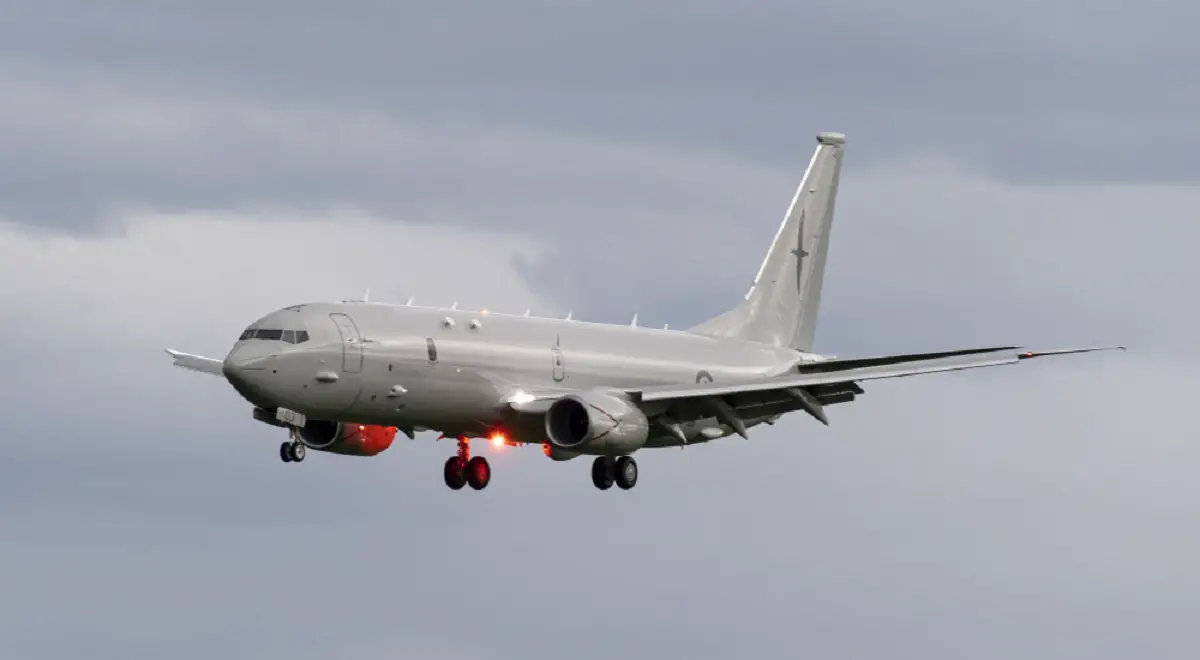The New Zealand Defence Force (NZDF) will for the sixth time deploy a maritime patrol aircraft and specialist personnel to detect and deter evasions of United Nations Security Council resolutions imposing sanctions against North Korea. The NZDF has contributed personnel and maritime surveillance patrol aircraft to help enforce Security Council sanctions against North Korea since 2018. North Korea continues to launch ballistic missiles in violation of Security Council resolutions. The sanctions are intended to persuade the country to denuclearise and abandon its ballistic missile weapons capabilities. Previous patrols in support of enforcing Security Council sanctions were conducted by the now-retired P-3K2 Orion. The Poseidon aircraft and crew will be based in Japan, conducting sanctions enforcement flights in support of the Enforcement Coordination Centre. Patrols will be conducted during April and May.
Commander Joint Forces New Zealand, Rear Admiral Jim Gilmour said,“The NZDF was committed to working alongside partners on enforcement operations, to uphold the international rules-based system and contribute to regional stability and security. The maritime surveillance and reconnaissance patrols will be over international waters looking for violations of the sanctions resolutions, including illicit ship-to-ship transfers of banned goods such as oil and coal.”
Air Component Commander, Air Commodore Andy Scottsaid,“The deployment included several “firsts” for the Royal New Zealand Air Force’s latest aircraft, the Boeing P-8A Poseidon. This is the first time one of our Poseidons has been deployed operationally overseas, the first time we have operated in Asia, which will be the furthest deployment away from New Zealand, and the first time we have used this aircraft in support of New Zealand’s contribution to uphold UN Security Council sanctions enforcement.”

The Boeing P-8 Poseidon is an American maritime patrol and reconnaissance aircraft developed and produced by Boeing Defense, Space & Security, and derived from the civilian Boeing 737-800. It was developed for the United States Navy (USN). The P-8 operates in anti-submarine warfare (ASW), anti-surface warfare (ASUW), and intelligence, surveillance and reconnaissance (ISR) roles. It is armed with torpedoes, Harpoon anti-ship missiles, and other weapons, can drop and monitor sonobuoys, and can operate in conjunction with other assets, including the Northrop Grumman MQ-4C Triton maritime surveillance unmanned aerial vehicle (UAV). In 2018 the Government announced it would be purchasing four Boeing P-8A Poseidon maritime patrol aircraft from the United States Government. The four aircraft are replacing six P-3K2 Orion maritime patrol aircraft that have been operated by the Royal New Zealand Air Force since the 1960s. The last P-3K2s retired on 31 January 2023.
The first P-8A Poseidon arrived in New Zealand on 12 December 2022. All four Poseidons are now at RNZAF Base Ohakea and the fleet is operational for taskings. No.5 Squadron’s operational crews are pilots, flight engineers, air warfare officers, air warfare specialists and air ordnance specialists. Following operational release, the P-8A Poseidon will conduct a range of tasks including aerial surveillance of New Zealand’s areas of interest such as the Exclusive Economic Zone (EEZ), the South Pacific and the Southern Ocean including the Ross Dependency and Antarctica. They will support a range of Government agencies, including Ministry for Primary Industries, New Zealand Customs, New Zealand Police, and the Department of Conservation. When established, they will support the community and our neighbours 24/7 for 365 days of the year with contingency capability for tasks such as search and rescue and support in the event of natural disasters.















